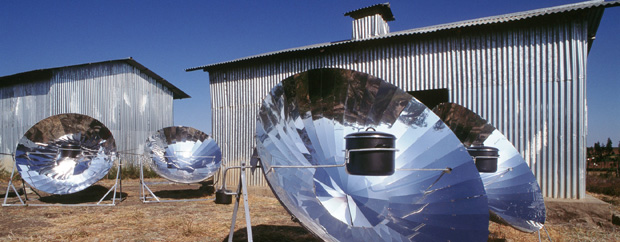
Climate change is one of the central challenges faced in the 21st century. It is already seriously affecting societies around the world. Nonetheless, greenhouse gas emissions continue rising on a global scale. One of the reasons is that emitters, those who cause the emissions, are not required to cover the costs of climate change: the damage caused to the climate equates to external costs that are not included in the price of a tonne of coal, a barrel of oil or a cubic metre of gas.
Putting a price on carbon can change all of that. If an appropriate price were to be charged for every tonne of CO2e emitted, it would send a signal to both businesses and consumers, helping them to give greater consideration to climate change in their production, investment and purchasing decisions. Carbon pricing would also make it easier to implement climate change mitigation measures because the price signal it sends helps to ensure that emissions are reduced in those areas where cost-savings can be achieved. The more regions that belong to the carbon market, the higher the expected efficiency gain and the lower the risk of emission-intensive business activities being relocated to regions in which the emitters of greenhouse gas emissions do not incur costs.
Against this backdrop, the German government is striving to achieve the gradual creation of a global carbon market. The aim is to ensure that, in the longer term, carbon emissions are subjected to a price in all countries of the world. The Paris Agreement, which went into effect on 4 November 2016, provides a new foundation on which to establish innovative market-based climate change mitigation mechanisms which are to apply as of 2020. The Agreement thus serves as a new platform on which to establish a global carbon market.
This section of the website provides detailed introductory information on market-based instruments. It explains the basic functioning of carbon markets and their international dimension, describes the status of implementation of market-based instruments at national level and in the aviation and shipping sectors, and outlines the use of reduction certificates for the voluntary compensation of greenhouse gas emissions. In addition, the section presents the possibilities for cooperative climate action under Article 6 of the Paris Agreement and introduces the ongoing debate on the future of the CDM.
Carbon markets emerge when market-based instruments take hold and trading of carbon emission certificates begins. Market-based instruments put a price on emissions of climate-damaging greenhouse gases, thus promoting efficient climate change mitigation. There are basically two different approaches which lead to the creation of carbon markets: emissions trading schemes and crediting mechanisms. more
The Paris Agreement offers Parties the opportunity to cooperate with one another when implementing their NDCs. The cooperation mechanisms designed to assist this process should not only make it easier to achieve existing reduction targets, but also to raise ambition in future efforts. The cooperation mechanisms enshrined in Article 6 of the Paris Agreement form the legal framework to allow use of market-based climate change mitigation mechanisms. more
Joint Implementation (JI) and the Clean Development Mechanism (CDM), the first internationally recognized crediting mechanisms, were introduced under the Kyoto Protocol. It was especially with the CDM that valuable initial experience was gained - more than 8,000 emission reduction projects have been registered under the CDM so far. more
Cookie Settings
Marketing-Cookies werden von Drittanbietern oder Publishern verwendet, um personalisierte Werbung anzuzeigen. Sie tun dies, indem sie Besucher über Websites hinweg verfolgen.
Provider:
Statistik Cookies
Statistik-Cookies dienen der Analyse und helfen uns dabei zu verstehen, wie Besucher mit unserer Website interagieren, indem Informationen anonymisiert gesammelt werden. Auf Basis dieser Informationen können wir unsere Website für Sie weiter verbessern und optimieren.
Provider:
Erforderliche Cookies
Erforderliche Cookies sind für den reibungslosen Betrieb der Website zuständig, indem sie Kernfunktionalitäten ermöglichen, ohne die unsere Website nicht richtig funktioniert. Diese Cookies können nur über Ihre Browser-Einstellungen deaktiviert werden.
Provider: